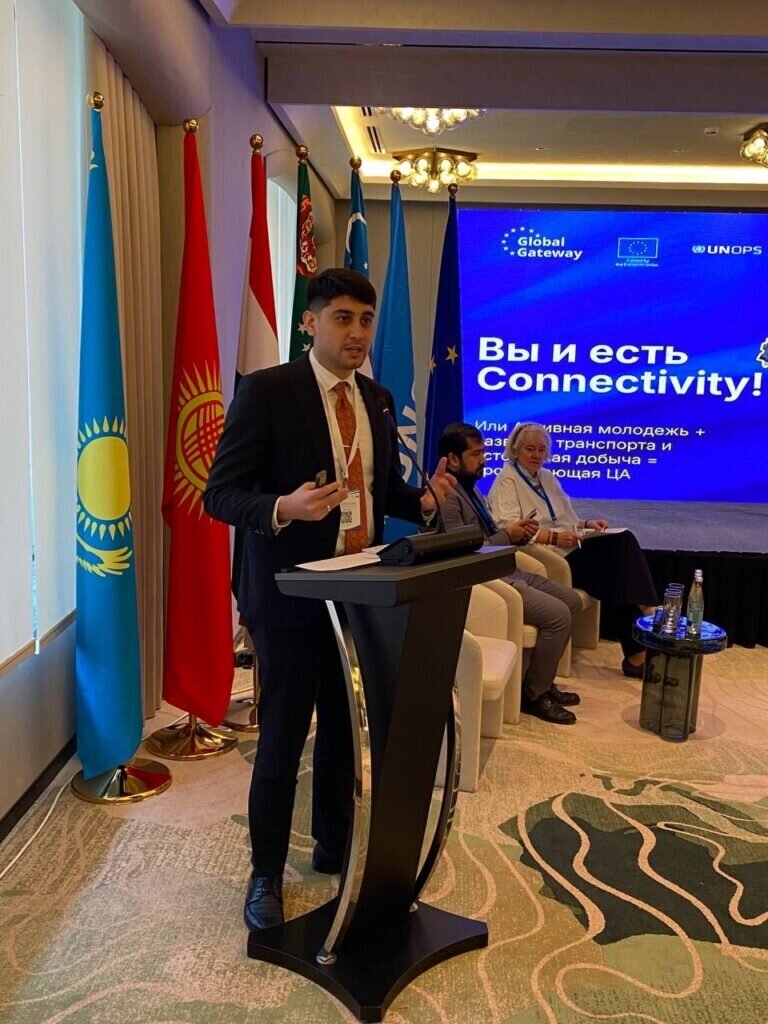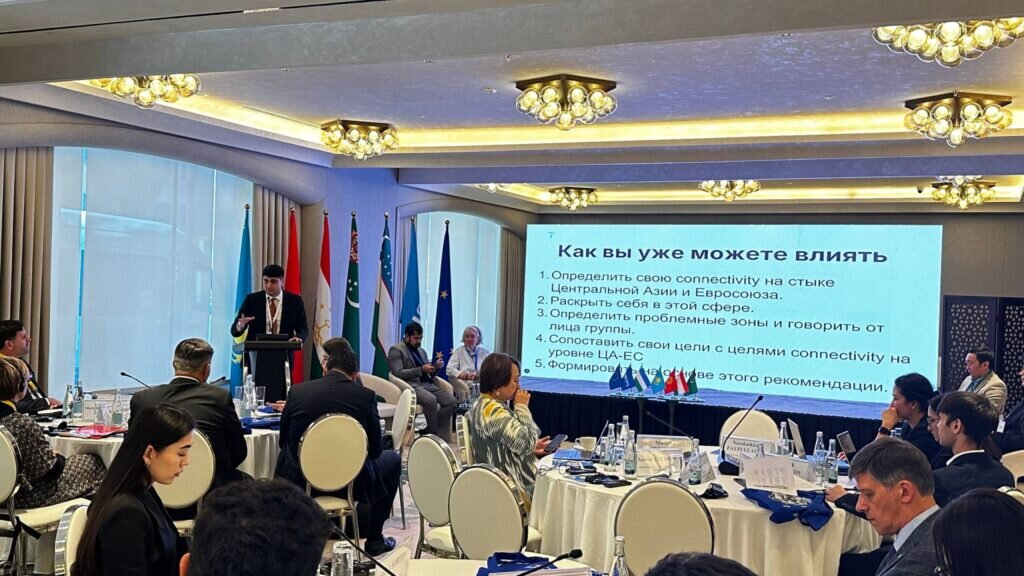Our Chief of Research Speaks on “Connectivity” in Central Asia–EU Relations

Our Chief of Research, Eldaniz Gusseinov, recently represented Nightingale at a meeting of the Youth Sounding Boards (YSB) under the Delegations of the European Union in Central Asia.
His presentation, titled “You (We) Are Connectivity! Or Active Youth + Transport Development and Sustainable Extraction = A Prosperous Central Asia,” explored how young people in Central Asia can actively shape the future of connectivity between the European Union and Central Asia.
Eldaniz focused on connectivity as a foreign policy paradigm, which he defined as:
“Connectivity as a Foreign Policy Paradigm: Prioritizes building extensive networks like transport, digital, financial, and institutional, that enable influence through interconnected systems. It emphasizes influence over access, infrastructure, and technological integration to shape global and regional geopolitics.”

Rather than seeing connectivity as just infrastructure or a historic narrative, he underlined that it is about mutual understanding, cooperation, and shared systems – how the EU and Central Asia can better learn about each other and coordinate policies through deeper networks.
In his talk, Eldaniz highlighted several ways in which young people in Central Asia can already contribute to this agenda:
- Defining their personal role in connectivity between Central Asia and the EU
- Finding their voice in this space and expressing their expertise publicly
- Identifying problem areas and speaking on behalf of their peers
- Aligning their goals with the broader CA–EU connectivity agenda
- Turning these insights into concrete policy recommendations
The establishment of Youth Sounding Boards in each Central Asian country is, in Eldaniz’s view, already a powerful step toward greater connectivity: it shows that the EU is actively listening to the region’s youth and adjusting its policies accordingly.
We are proud that Eldaniz could bring Nightingale’s perspective into this discussion and contribute to shaping the debate on connectivity, transport corridors, and sustainable resource development in Central Asia.
More impressions and takeaways from his work on connectivity and regional geopolitics will follow soon on our platform.